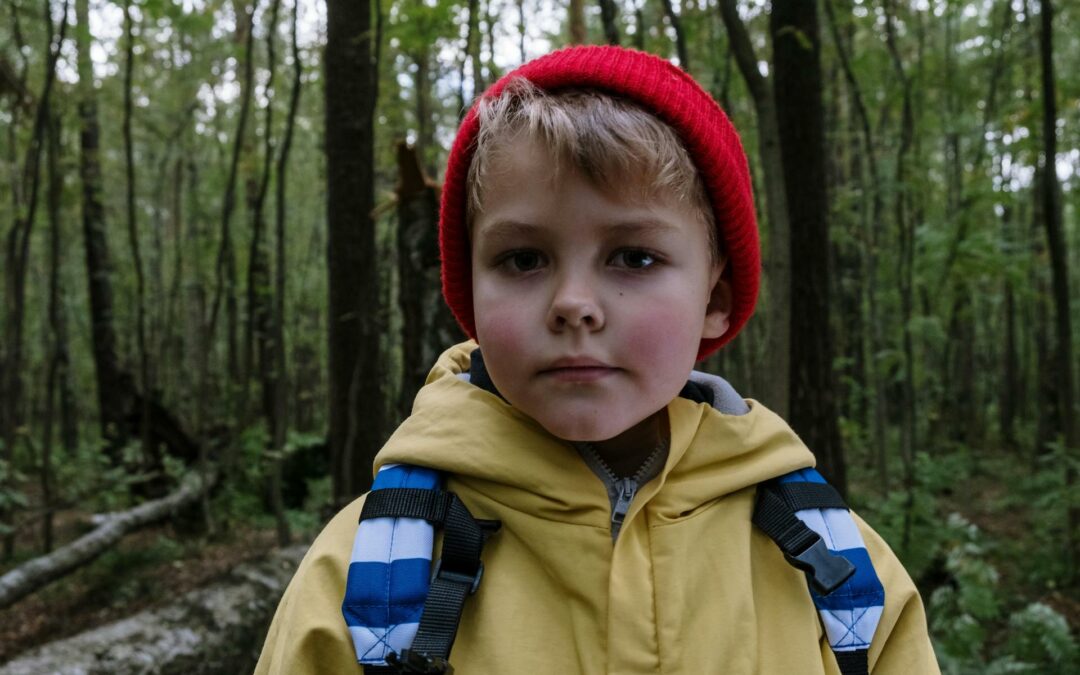For all the kids who have bravely and brilliantly helped me understand what it’s like to be them
You awaken with a start as an alarm clangs next to your head. Someone turns on the light in your room and it glares against your eyelids. You burrow under the covers, hoping to snatch a few more moments of sleep before the day begins. The blankets are abruptly torn off you, and there’s no place to hide. Your body feels heavy and your brain feels groggy, like it’s moving in slow motion and can’t quite catch up to the sudden rush of the day moving forward. It’s time to get up.
You don’t have a choice.
You slowly shuffle around the house, trying to prepare for the day while shaking sleep from your sluggish system. You hear a voice chiming in from the other room, reminding you of all the things you haven’t done yet, and that just jumbles your brain even further. You feel panic rise in your chest. The day has just begun and you’re already behind. You wish you could just rest, but you’re on a schedule here.
You don’t have a choice.
Later, you take your seat in a crowded room with harsh fluorescent lights and an open floor plan shared with, oh, a few dozen peers. On a good day, they’re quietly working and chatting to each other. On a bad day, they’re loud and rowdy and making fun of you for some reason, but there’s no Human Resources and there’s no place you can go to get away or be alone. Someone’s snapping their gum loudly, someone else is tapping their foot against your chair, someone else is in the middle of a coughing jag – it’s a symphony of stimulation but you’re supposed to ignore it. Whatever you do, stay still. Give or take a few breaks, you’re stuck here for the day. Better settle in.
You don’t have a choice.
Your body wants to stretch, move, play, dance, sing, rest, and explore. But you don’t want to draw attention to yourself or get in trouble. Instead, you sit and try to listen and learn important information that you’ll need to know later. Sometimes it’s hard to hear because of the chattering of your peers and the buzz of your anxiety. Other times, it’s hard to hear because you’ve zoned out and started daydreaming. Your body can’t move, so your mind does – far away from here, somewhere more interesting.
A place where you have a choice.
Suddenly you snap to attention, frozen in fear because you just heard your name called out in front of everyone. You’ve been asked a question that you’re supposed to know the answer to – and thanks to your daydream, you don’t. You feel embarrassed. Your peers laugh. Your cheeks burn and you duck your head, wishing you could run away. You’re worried there’s something wrong with you because you find it hard to do what you’re supposed to do. But you’re trying.
You don’t have a choice.
Eventually it’s time for lunch. In this moment, you do have a choice – you can choose eating, using the bathroom, or catching up with friends, but you don't have time to do all three. You’re on a schedule here. Hopefully you’re actually hungry during this brief window of time that’s been arbitrarily decided on. Otherwise you won’t have a chance to eat a proper meal for the rest of the day. Sorry.
You don’t have a choice.
Then it’s time for more work in the bright, noisy room, more listening and trying to pay attention. More wishing you could get up and move around, but feeling self-conscious because you can’t even go to the restroom without asking for permission first and broadcasting your bodily needs to everyone. You’re under a microscope, on a stage, trying to fit in, remember all the rules, and follow the routine.
You don’t have a choice.
At one point, your head is so full of shoulds and shouldn’ts that you feel like a pressure-cooker that’s about to burst. Someone starts using your supplies when you need them, and you snap at them. You’re supposed to be a good sharer, so now your break has been taken away. You were doing your best, but it wasn’t enough. You’re not allowed to be in a bad mood. Now you’ve lost the only thing that might have helped you regulate and refocus. You have to keep your head down and accept your punishment, though, if you don’t want to make things worse.
You don’t have a choice.
Some days, you’re reminded how vulnerable you are. Everyone goes through active shooter drills and prepares for disaster. You think about how you would respond if it happened to you. As you go through the drill, it feels like it is happening to you. Even on days without a drill, your body doesn’t forget that it needs to be ready for anything.
It doesn’t have a choice.
At the end of the day, you can’t wait to get home. You’re desperate to rest, have a snack, vent, move, do something with all this pent-up energy that’s been coursing through your body all day. You’ve been ignoring your own needs to make sure you go along with what’s expected of you. And the moment you’re in a safe space where you can finally be yourself, you have a meltdown – you’re hangry and tired and grumpy, your nervous system is fried, and although there are probably healthier ways to express yourself, this is how it’s coming out.
You don’t have a choice.
Sometimes the people around you are kind. They share a snack with you and listen and empathize. They help you process your feelings and regulate your nervous system. Other times they mean well, but they’re really stressed, too – they’re feeling overwhelmed or in a hurry, and just wish you would make things easy and do what they say. After all, they’re the ones in charge.
You don’t have a choice.
At home, you find yourself wanting to unwind. Unfortunately, you usually have a few hours’ worth of work to do every night. Your body could probably benefit from eating something or drinking water or exercising or taking deep breaths, but the crushing weight of your to-do list settles into your stomach. You could take care of yourself, but then you’d risk not getting all your work done. You’re worried what that would mean about you. Whether it would disappoint anyone. You don’t want to disappoint anyone. So you keep going.
You’re doing all this because it’s expected of you, just like everyone else. This is how you succeed. Don’t you want to succeed? You worry about not being good enough. But even if you do well, it feels like that could change at any time. You’re walking a tightrope, holding your breath – because you don’t know what will happen if you fall. You don’t know if anything will catch you. So you try to be what you’re supposed to be, and you don’t look down.
You don’t have a choice.
You finally finish your work. You’re craving connection to other people, you want to have fun and to feel like a human, but now everyone around you is tired or catching up on their own tasks. You’ve been holding it together all day, and you wish someone would swoop in and take care of you for a while. You want to be cuddled and pampered and reminded that you’re not alone. But you’re often told that you need to do things for yourself, you’re old enough to know how, it’s time to grow up.
You spent most of the day not allowed to do anything without permission, not allowed to make any choices – and now you’re encouraged to do everything on your own, to be empowered. You feel confused by these mixed messages but assume this is because something is wrong with you. You’ll keep trying to figure out what you’re supposed to do, who you’re supposed to be. You’ll need to keep trying, if you want to feel safe.
You don’t have a choice.
Soon it’s time for bed and there are things to do again. Teeth to brush, pajamas to put on. You’re not ready for the day to end – you’ve barely gotten to do anything you want to do! You wish you could stop time and just relax, play, laugh, belong.
You wish you could just enjoy being a kid.
You climb into bed, hug your stuffy, and roll over with a sigh. It’s hard to rest after being on the fast-track to adulthood all day, but you try to get some sleep.
Maybe you’ll have a choice tomorrow.
Childhood can be hard, filled with pressure, expectations, and confusion. If your child is dealing with big feelings, anxiety, sensory overwhelm, or low self-esteem, play therapy can help them make sense of their experience and learn how to manage emotions in a healthy way. Play therapy provides a special place where they get to take the lead, offering the freedom and autonomy they need to build self-regulation and feel more empowered. In our work together, you’ll also learn how to support your own nervous system so you can increase your capacity to coregulate and connect with your child. If you’d like to learn more, please reach out – you don’t have to navigate these challenges on your own.

